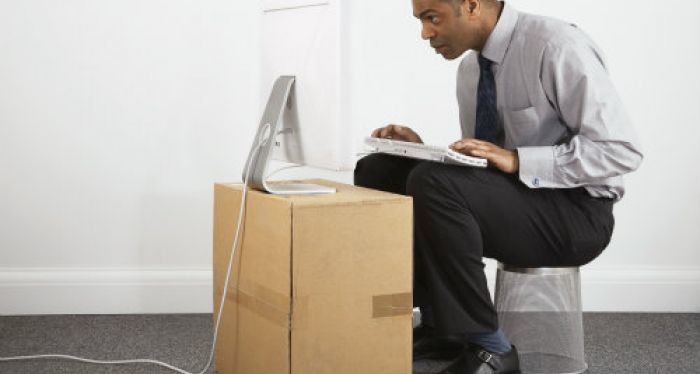Near-Future Workplace: What Will Your Office Look Like?
Views, News & more

Technology is changing the way we live, the way we play and, of course, the way we work. The rigid, office-based 9-to-5 where you work at a fixed desk from a corporate computer is rapidly becoming something much more fluid. Today we’re more likely to work flexibly, perhaps from home or a shared working space. And we’re more likely to hot-desk and switch around than we are sit chained to a desk.
Businesses realise they must embrace the rapid advancement of technology and bring it into their offices if they are to enjoy a smart workspace full of efficient, motivated employees. So what will the office of the near-future look like?
Rise of the robots
Will you one day come into the office and sit next to a robot colleague for the day? Very possibly. Over the past few decades automation has slowly crept into various industries, and it’s set to continue apace. A recent report by PricewaterhouseCoopers found a third of British jobs could be taken over by robots within just 15 years. While some industries will do better than others, it’s thought that the rise of robots in the workplace won’t result in major rises in unemployment. Instead, automation is set to boost productivity and actually create additional jobs.
The cyber security department
Cyber security is now seen as a business-critical issue. Over the next few years protecting businesses from online crime will become more and more important. Expect to see the rise of the dedicated cyber security department, with not only a chief security officer but, depending on the size of the company, a raft of technical experts working hard to keep businesses safe.
Work from anywhere
Flexible working, aided by technology, can only be set to continue, as workplaces become more fluid and workforces more distributed. And this won’t mean more Skype chats - virtual reality will be a key communication tool between employer and remote employee.
"Millennials will not tolerate the commute," Christer Holloman, a former technology journalist and founder of Divido.com, told IT Pro last year.
"They want to work from anywhere, a VR solution can offer us a gateway to a shared virtual workplace. We already offer flexible hours, virtual offices could be next... VR will do to the cost of office space what 'open office plans' and 'hot desking' did 10 years ago."
But if you do go in, you probably won’t have a desk
Hot-desking is already a thing, and it’ll evolve significantly into something called ‘activity-based working’. An example of this is what Lego is doing at its London and Singapore offices - there the firm’s staff don’t have fixed desks. Instead, they work in “flexible work zones” with no fixed seats and no offices for managers. Lego senior director Sophie Patrikios told BBC News: "In our May 2016 survey, 88 per cent of staff said they liked the choice of where to work. They get a choice of different settings to suit their activity or mood, including a quiet library, a buzzing social area with background music, comfy chairs in cosy corners or big banks of desks to share with team-mates.”
What do you think the office of the near-future will look like?
Get in touch
020 7847 4510
We may process your personal information in order to send you information you request, measure and improve our marketing campaigns, and further our legitimate interests. For further details, see our privacy policy.
Contact us
-
- Head Office:
- hSo, 50 Leman Street, London, E1 8HQ
- Switchboard:
- 020 7847 4500
- Support (24x7):
- 0333 200 3337
- support@hso.co.uk
- Marketing & Sales:
- 020 7847 4510
- info@hso.co.uk

















